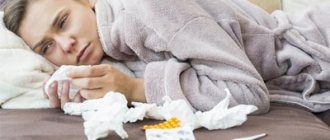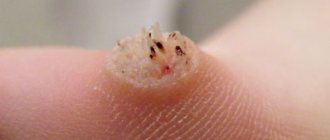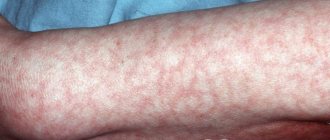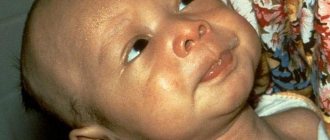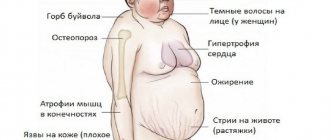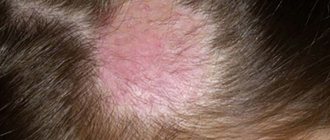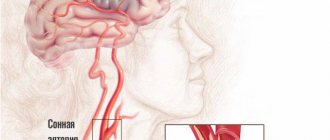A person spends a third of his life in the “dream world.” If we take into account the average duration (about 70 years), then 30 of them we look through dreams. If someone is about to complain to heaven about the mediocre distribution of the allotted time, stop - not everyone is lucky enough to have good, full sleep. There is even such a rare disease as fatal familial insomnia. The inability to sleep, passed down through generations, involuntarily evokes dark mystical thoughts about a generational curse.
Types and symptoms of sleep disorders (insomnia)
Rest needs vary from person to person. For some, six hours is enough to fully restore strength, while others need to sleep at least eight to nine. Problems due to lack of sleep at night can occur periodically or be chronic. There are several types of deviations with different symptoms:
- Presomnia disorder, or difficulty falling asleep. A person may toss and turn in bed for hours trying to fall asleep. This is usually accompanied by obsessive thoughts and anxiety.
- Intrasomnic. A person wakes up many times a night for no apparent reason, after which it is difficult for him to fall asleep again. Sleep is often accompanied by nightmares.
- Post-somnia – short sleep, early awakening. Many people dream of learning to get up early, but in this case the person does not feel that he got enough sleep because the amount of rest was insufficient. This is a reason to think about your health and eliminate sleep disturbances.
Another sign of somnological problems is the constant feeling that night rest, even with a normal duration, does not give the required effect. The person feels “broken” and tired.
If such symptoms do not go away for a long time, it is recommended to seek help from a specialist. Frequent awakenings at night can have serious consequences for health: immunity decreases, the risk of developing cardiovascular diseases, diabetes, breast cancer, and obesity increases significantly.
How would you characterize the sleep disorder that is bothering you?
USEFUL INFORMATION: Causes of night sweats: excessive sweating during sleep
Types of disorders
There are a wide variety of disorders. They manifest themselves exclusively individually in the patient. Sleep problems are different for everyone.
- Bruxism. With this type, teeth involuntarily clench or grind teeth.
- Phase delay. It will be difficult for a person to fall asleep and wake up at the right time. He falls asleep no earlier than one in the morning and wakes up during the day.
- Hypnea syndrome. Slow breathing is noticed, which is not normal.
- Primary insomnia. The patient has difficulty falling asleep.
- Kleine-Levin syndrome. Characteristic of adolescence. Then the patient sleeps for 18 hours. He will only wake up to eat. If at the same time the teenager is not allowed to sleep, disturbed and constantly woken up, he becomes irritable and aggressive.
- Narcolepsy. During the day there is drowsiness and unexpected falling asleep.
There are moments when you are afraid to fall asleep because of nightmares. With somnophobia, the patient is afraid to fall asleep and therefore feels panic at this moment.
Another type of disorder would be sleep paralysis. It occurs just before waking up or immediately after falling asleep. At this moment, paralysis of the entire body is felt, accompanied by auditory or visual hallucinations.
Which doctor should I contact if I have sleep disturbances?
First of all, it makes sense to visit a therapist. The doctor will give recommendations on maintaining a sleep schedule, exercise, relaxation procedures and, if necessary, refer you to the right specialist:
- See a neurologist (neuropathologist). The majority of calls regarding sleep disorders come from this doctor. A neurologist may prescribe sleeping pills or sedatives, as well as other types of treatment.
- Somnologist. This doctor specializes in all types of sleep disorders, so it is recommended to consult him if you have persistent problems with night rest. The main research method is polysomnography. Unfortunately, getting to a somnologist is not so easy: he is a rare specialist, and he is not available in every city.
- Psychologist. It will help with sleep disorders caused by psychological problems, depression, and stress.
- To a psychotherapist. Deals with disorders associated with mental disorders.
- Other doctors: a cardiologist, if sleep problems are caused by heart disease; an endocrinologist if a person sleeps poorly due to hormonal imbalance.
Causes
There can be many reasons for such discords. They are divided into two categories.
Firstly, those that do not relate to diseases are included. The second category contains causes of poor sleep that are symptoms of another disease.
Healthy people may feel worse for the following reasons:
- late dinner;
- day rest;
- lack of physical activity;
- work at night;
- schedule failure due to time zone changes and others.
Important! To restore somnia, a healthy person needs to eliminate the cause of its disturbance.
A difficult awakening also indicates depression. Then, you will feel tired throughout the day, aggression and lack of mood will be observed.
Other diseases of the nervous system also cause somnia disorders. With brain tumors or diseases of the cardiovascular system, the sleeper will be haunted by poor sleep.
Problems also arise when taking drinks or medications containing caffeine. It is better not to overuse hot coffee or strong tea before falling asleep.
For people who react sharply to any impressions, this feature will prevent them from falling asleep normally. A minor experience can lead to hours spent dreamless.
Sleep problems in adults: types of disorders
A classification of sleep-related disorders has been developed. The most common types are:
- Insomnia (insomnia). With this diagnosis, patients consult a doctor complaining of problems falling asleep or frequent awakenings. Temporary insomnia is usually caused by a psychological condition. Its chronic form most often affects people who abuse alcohol, take drugs that depress the central nervous system, or have serious illnesses.
- Hypersomnia. This is a disorder associated with constant drowsiness. A person needs little time to immerse himself in the kingdom of Morpheus. The problem may be caused by stress or other negative factors, such as the use of alcohol or medications.
- Failure of wakefulness and rest mode. If a person does not sleep well at night, and during the day he constantly wants to lie down, this may be due to frequent changes in time zones or a variable work schedule.
- Parasomnia. This is a group of sleep disorders caused by improper functioning of body systems. It includes somnambulism, night terrors, enuresis, bruxism, restless legs syndrome, paroxysmal dystonia and other problems.
Having found out the exact type of disease, you can independently or together with a doctor develop a competent treatment method.
INTERESTING FACTS!
- The journal Sleep and Biological Rhythms published an article in 2011 that described the results of an interesting study. It turns out that night owls have nightmares more often than early birds.
- In 1979, a rare genetic disease was discovered - fatal familial insomnia. The pathology was observed in only 40 families, in patients aged 30 to 60 years, and is considered incurable and leads to death. A patient suffering from this disorder first suffers from severe insomnia, which is accompanied by panic attacks and hallucinations. Then the person completely loses the ability to sleep, then stops speaking, falls into a state reminiscent of a coma, and dies. It takes only 7–36 months from the first symptoms to death.
- The “internal alarm clock,” which helps some people wake up at the chosen time, works due to the stress hormone adrenocorticotropin. In fact, a person unconsciously prepares himself for a stressful situation upon awakening.
Symptoms
Common signs of sleep disorders include the following:
- Feeling of insufficient rest at night.
- Presomnia disorders, expressed in the inability to fall asleep in the evening, turning over from side to side. They are often accompanied by anxiety, obsessions and fear.
- Intrasomnic worsening. They can be recognized by shallow, restless sleep with periodic awakenings.
- Post-somnia disorders. When falling asleep well, the patient gets up earlier than usual, then he is unable to fall asleep again, or he falls into a restless sleep. It often manifests itself in the fairer sex and older men, as well as in people who are depressed.
- Feeling of lack of restored strength in the morning.
- Feeling sleepy. The patient begins to doze throughout the day.
- State of fatigue.
- Anxiety before falling asleep.
Causes of poor sleep in adults
Sleep disorders can be caused by various factors. To accurately find out the cause of the disease, doctors recommend keeping a special diary. It is necessary to regularly record all events that could cause insomnia. The main prerequisites for the occurrence of sleep disorders:
- Uncomfortable environment. Often the reasons lie in the wrong pillow or mattress. For proper rest, the room should be dark and quiet. You also need to eliminate all unpleasant odors and ventilate the room.
- Emotional condition. If a person is tense or upset, thoughts are constantly spinning in his head, then it is very difficult to sleep.
- Poor nutrition. If dinner consisted of a lot of heavy food, then the likelihood of normal rest is sharply reduced.
- Frequent travel from one time zone to another, shift work schedule. The body simply does not have time to adapt to new conditions.
- Taking drinks and drugs that stimulate psychological activity. Therefore, you should not drink strong tea, coffee, or alcoholic drinks late in the evening.
- Diseases and pathological conditions: neurosis, depression, neuroinfections, concussion, asthma, arthritis, coronary heart disease, oncology.
- Menopause in women. A deficiency of hormones - estrogen and progesterone - manifests itself in the form of hot flashes and night sweats, impaired magnesium metabolism, which is responsible for muscle relaxation, and increases the tendency to insomnia.
- Treatment with certain types of drugs. Insomnia is a side effect of some medications. This group includes drugs to normalize blood pressure, for angina pectoris, diuretics, medications with caffeine, and corticosteroids.
- Hormonal disorders, thyroid problems. Thyroid hormones, which are produced in excessive quantities during hyperthyroidism, stimulate metabolism and prevent relaxation.
- Deficiency of certain microelements, vitamin deficiency. For example, a lack of magnesium in the body provokes nervousness and sleep problems.
- Hereditary predisposition to insomnia. Sleep disorders of this nature are difficult to treat.
USEFUL INFORMATION: Sleep paralysis: causes
Only by correctly identifying the causes can you choose the right treatment tactics.
Causes of sleep disorders and ways to cope with them
The science of sleep strongly recommends that everyone maintain an adequate level of nightly rest throughout their lives in order to enjoy the allotted time to the fullest and not go into another world earlier than expected. Unfortunately, sometimes the desire to sleep is not enough. Sometimes a person simply cannot fall asleep or achieve satisfactory quality of sleep due to his disorders, which we want to tell you about.
Insomnia
Insomnia, also known as insomnia, is an extremely indiscriminate and widespread sleep disorder that occurs in people of all ages. Characterized by insufficient duration and/or poor quality of sleep, occurring on a regular basis over a long period of time (from three times a week for a month or two).
Oleg Golovnev/Shutterstock.com
Reasons. Stress, side effects of medications, anxiety or depression, alcohol abuse, drug use, disruption of circadian rhythms due to shift work schedules, somatic and neurological diseases, constant overwork, poor sleep hygiene and its unfavorable conditions (stale air, external noise, excess illumination).
Symptoms. Difficulty falling and staying asleep, concern about sleep deprivation and its consequences, decreased mental and physical performance, and decreased social functioning.
Treatment. Diagnosing the cause of your sleep disorder is the first step to getting rid of insomnia. To identify the problem, a comprehensive examination may be necessary, ranging from a medical examination to polysomnography (registration of the parameters of a sleeping person with special computer programs).
Although it’s worth starting with the basics, which have long been tested by time and many people: avoiding daytime naps, controlling overeating in the evening, following a precise daily bedtime schedule, ventilating and curtaining the room, light physical activity before bed, avoiding mental stimulation from games, TV, books, taking a cool shower before bed.
If the measures taken are unsuccessful, the help of a psychologist may be required, treatment of the underlying somatic or neurological disease as prescribed by the doctor.
Restless legs syndrome
RLS is a neurological disease characterized by unpleasant sensations in the legs and manifests itself during a calm state, usually in the evening and at night. It occurs in all age groups, but mainly in people of the middle and older generations, and 1.5 times more often in women.
Causes. There are primary (idiopathic) and secondary (symptomatic) RLS. The first occurs in the absence of any neurological or somatic disease and is associated with heredity, and the second can be caused by a deficiency of iron, magnesium, folic acid, thiamine or B vitamins in the body, diseases of the thyroid gland, as well as uremia, diabetes mellitus, chronic lung diseases, alcoholism and many other diseases.
Symptoms. Unpleasant sensations in the lower extremities of an itching, scraping, stabbing, bursting or pressing nature, as well as the illusion of “crawling goosebumps”. To get rid of difficult sensations, a person is forced to shake or stand on his feet, rub and massage them.
Treatment. First of all, treatment is aimed at correcting the primary disease or replenishing the detected deficiency of elements beneficial to the body. Non-drug therapy involves avoiding drugs that can increase RLS (for example, antipsychotics, metoclopramide, antidepressants and others), in combination with moderate physical activity during the day, rinsing the feet in warm water or vibrating the feet. Drug therapy may be limited to taking sedative (calming) drugs or develop into a course of drugs from the group of benzodiazepines, dopaminergic drugs, anticonvulsants, opioids.
REM sleep behavior disorder
It is a malfunction in the functioning of the central nervous system and is expressed in the physical activity of the sleeper during the REM sleep phase. REM (rapid eye movement) is characterized by increased brain activity, dreams, and paralysis of the human body except for the muscles that control the heartbeat and breathing. With behavioral disorder FBG, the human body acquires abnormal “freedom” of movement. In 90% of cases, the disease affects men, mainly after 50 years of age, although there have also been cases with nine-year-old patients. A fairly rare disease, occurring in 0.5% of the world's population.
Causes. Not known for sure, but there has been an association with various degenerative neurological diseases, such as Parkinson's disease, multiple system atrophy, dementia or Shy-Drager syndrome. In some cases, the disorder is caused by drinking alcohol or taking antidepressants.
Symptoms. Talking or screaming in sleep, active movements of limbs, twisting them, jumping out of bed. Sometimes “attacks” turn into injuries that are received by people sleeping nearby or by the patient himself due to violent blows inflicted on pieces of furniture.
Treatment. The antiepileptic drug Clonazepam helps 90% of patients. In most cases, it is not addictive. If the drug does not work, melatonin is prescribed, a hormone that regulates circadian rhythms.
Sleep apnea
Nothing more than a cessation of respiratory movements with a short-term cessation of ventilation of the lungs. Sleep disorder itself is not life-threatening, but it can cause other serious diseases, such as arterial hypertension, coronary heart disease, stroke, pulmonary hypertension, and obesity.
Causes. Sleep apnea can be caused by narrowing and collapse of the upper airways with characteristic snoring (obstructive sleep apnea) or a lack of “breathing” impulses from the brain to the muscles (central sleep apnea). Obstructive sleep apnea syndrome is much more common.
Symptoms. Snoring, drowsiness, difficulty concentrating, headaches.
Treatment. One of the most effective methods of treating obstructive sleep apnea is CPAP therapy - continuous provision of positive pressure in the airways using a compressor unit.
Brian Chase/Shutterstock.com
But regular or periodic use of CPAP machines is not suitable for all people, and therefore they agree to surgical removal of some pharyngeal tissue to increase the lumen of the airways. Laser plastic surgery of the soft palate is also popular. Of course, these treatment methods should be prescribed only after a detailed examination of a person’s health.
As an alternative to surgical intervention, it is proposed to use special intraoral devices to maintain clearance in the airways - mouth guards and pacifiers. But, as a rule, they do not have any positive effect.
As for central sleep apnea, CPAP therapy is also effective here. In addition to it, a verified medicinal treatment is carried out.
We must not forget about prevention, which needs to be addressed as early as possible. For example, it is recommended to stop smoking and drinking alcohol, play sports and lose excess weight, sleep on your side, raise the head of the bed, and practice special breathing exercises that will help strengthen the muscles of the palate and pharynx.
Narcolepsy
A disease of the nervous system related to hypersomnia, which is characterized by repeated episodes of excessive daytime sleepiness. Narcolepsy is very rare and mainly affects young men.
Causes. There is little reliable information, but scientific studies refer to a lack of orexin, a hormone responsible for maintaining a state of wakefulness.
Presumably the disease is hereditary in nature in combination with an external provoking factor, such as viral diseases.
Symptoms. Narcolepsy can manifest itself with one or more symptoms at the same time:
- Daytime attacks of irresistible drowsiness and attacks of sudden falling asleep.
- Cataplexy is a peculiar condition of a person in which he loses muscle tone due to strong emotional shocks of a positive or negative nature. Typically, cataplexy develops rapidly, which leads to a collapse of the relaxed body.
- Hallucinations when falling asleep and waking up, similar to waking dreams, when a person is not yet asleep, but at the same time already feels visual and audio visions.
- Sleep paralysis in the first seconds, and sometimes even minutes after waking up. In this case, the person remains in a clear consciousness, but is able to move only his eyes and eyelids.
Treatment. Modern therapy cannot cope with the disease, but can mitigate its symptoms. Drug treatment involves taking psychostimulants that reduce drowsiness and weaken the symptoms of cataplexy or sleep paralysis.
Somnambulism
The disease, better known as sleepwalking or sleepwalking, is characterized by a person's physical activity while he is in a state of sleep. From the outside, sleepwalking may seem quite harmless, because the sleeper can do the most ordinary household chores: cleaning, watching TV, listening to music, drawing, brushing teeth. However, in some cases, a sleepwalker can harm his health or commit violence against a person he accidentally meets. The eyes of a somnambulist are usually open, he is able to navigate in space, answer simple questions, but his actions are still unconscious. Having woken up, the sleepwalker does not remember his nightly adventures.
Causes. Lack or poor quality of sleep, painful or febrile condition, taking certain medications, alcoholism and drug addiction, stress, anxiety, epilepsy.
Symptoms. In addition to normal ambulation and simple operations, sleeping in a sitting position, muttering, and involuntary urination may occur. Often, somnambulists wake up in a place other than where they went to sleep, for example, instead of a bed, on a sofa, armchair, or in the bathroom.
Treatment. Often, people suffering from sleepwalking do not require medication. They are advised to reduce stress levels and maintain sleep hygiene. If the measures taken are insufficient, antidepressants and tranquilizers are prescribed. Treatment using hypnosis is also practiced.
Bruxism
Expressed by grinding or knocking of teeth during sleep. The duration of the attack can be measured in minutes and repeated several times a night. Sometimes the sound is so strong that it begins to cause discomfort to people around. But bruxism causes much more harm to the sleeper himself: problems with tooth enamel, gums and jaw joints are aggravated.
Causes. There is no reliable information. Theories regarding the development of bruxism as a result of the presence of worms in the body, exposure to environmental factors, or the need to file teeth have not received scientific confirmation. The most likely causes are stress, mental imbalance, mental fatigue and nervousness. There are frequent cases of bruxism in people with malocclusion.
Symptoms. Morning migraines and headaches, complaints of pain in the facial muscles, temples, jaws, ringing in the ears. With the long-term nature of the disorder, the hard tissue of the teeth is erased and caries develops.
Treatment. Self-relief from stress or psychological consultation. For patients with bruxism, mouth guards are individually made to protect teeth from friction.
Am2 Antonio Battista/Shutterstock.com
Night terrors and nightmares
Despite all the unpleasant homogeneity of horrors and nightmares, they are expressed differently during sleep.
Night terrors come in the deep phase of sleep, during which there are almost no dreams, so a person wakes up with a feeling of despair and a sense of disaster, but cannot describe a detailed picture of events.
Nightmares occur during the REM sleep phase, during which dreams occur. A person awakens from difficult emotions, and at the same time he is able to describe the details of what happened.
Anxiety dreams are more common at a young age, with a gradual decrease in frequency as people get older.
Causes. There are several theories about the origin of night terrors and nightmares. For example, a difficult dream may be the result of a previously experienced traumatic event, or it may indicate an impending illness. Often horrors and nightmares arise against a general background of depression and anxiety. It is believed that they also serve as a warning, strengthening a person’s phobias in a dream so that he remains as careful as possible in life.
Some antidepressants and blood pressure medications may cause troublesome dreams.
Involvement in horror stories in movies, games and books can play a negative role in the occurrence of horrors and nightmares.
Symptoms. Screams and groans, increased blood pressure and sweating, rapid breathing and heart rate, sudden awakening in fright.
Treatment. Getting rid of stress, acquiring new positive emotions, maintaining sleep hygiene are the first steps to getting rid of night fears and nightmares. In some cases, treatment with a psychotherapist or medication may be necessary.
Have you ever suffered from sleep disorders? What techniques helped you get rid of them?
Night sleep disturbance in older people and adolescents
In older people, metabolic processes slow down, so the need for rest decreases.
This is not considered a disorder and does not require treatment. However, older adults often experience sleep disturbances caused by illness and certain medications. In adolescence, the causes of sleep disorders may lie in increased anxiety and stress. During your vacation, you should not think about problems and plan the future day. Once you get comfortable in bed, think about something good or immerse yourself in pleasant memories.
How sleep pathologies manifest themselves: symptoms
Sleep disturbance involves various phenomena that are characterized by one common feature: a subjective feeling of lack and inferiority of night's rest. The pathological syndrome is manifested by a variety of phenomena , such as:
- inability to quickly fall asleep, taking too long to fall asleep;
- superficial, weak sleep;
- nightmares, night terrors;
- abnormal motor activity;
- painful speech activity;
- breathing problems;
- urinary incontinence;
- sleepwalking;
- early rise in the pre-dawn hours;
- hallucinations while falling asleep and waking up;
- drowsiness during the daytime;
- Spontaneous falling asleep during the daytime.
Diagnosis of sleep disorders
If all the above reasons lie in external factors, then it will be easy to eliminate them yourself. In cases where insomnia is caused by illness, it is necessary to undergo a medical examination. The most commonly used diagnostic methods are:
- Polysomnography. This study is carried out under the supervision of a somnologist. The patient is asked to spend the night in a specialized laboratory. There, several sensors will be connected to it simultaneously. The equipment records brain activity, heart rate, respiratory system functions, blood oxygen saturation and other indicators. As a result of analyzing the collected data, the doctor can identify deviations and create a competent treatment method.
- Sleep problems in adults can also be determined by studying its average latency. The procedure is often prescribed in cases where narcolepsy is suspected. A person must make five attempts to fall asleep. He is given 20 minutes for one attempt. The break between studies is 2 hours. If the average time it took the patient to immerse himself in the kingdom of Morpheus does not exceed five minutes, he is diagnosed with “pathological drowsiness.”
Such diagnostic methods make it possible to identify the reasons why the patient sleeps poorly and develop the correct strategy for treating sleep disorders. Problems identified in the early stages are highly treatable.
Diagnostic methods
For diagnosis, somnologists use special devices. This method is called polysomnography. The principle of its operation is that the patient spends the whole night in the laboratory, and doctors monitor his condition.
At this moment, various sensors are connected to the body. They monitor the functioning of internal organs and how different phases go through. Based on these studies, somnologists draw conclusions and determine a possible disease.
There is another method for diagnosing sleep disorders. Doctors examine how the process of falling asleep occurs, determining the average latency of relaxation.
You are given 5 attempts to fall asleep at intervals of two hours. The attempt itself lasts 20 minutes.
It is considered normal if it takes more than 10 minutes to fall asleep. Excessive sleepiness occurs in someone who falls asleep in less than 5 minutes.
What to do?
When deciding what to do, you first need to identify the cause. If a medical examination does not show the presence of serious diseases, then simple methods will help solve the problem:
- Try to go to bed at the same time every day. A clear regime will allow the body to get used to it and fully rest.
- At night, do not read serious literature, do not watch horror films or thrillers. This leads to nightmares and sleep disturbances in adults with a fairly mobile psyche.
- Eliminate daytime naps completely.
- Sleep in a quiet, dark room. Make sure there are no drafts or stuffiness. It is important to feel maximum comfort in bed.
- Try to relax. Take a warm bath. You can add decoctions of medicinal plants or essential oils to it.
- Make time for physical activity during the day and, if possible, go for a walk in the evening.
- Avoid eating chocolate or drinking caffeinated drinks at night. Better eat a small portion of cottage cheese or an apple. Don't overeat before bed, but you shouldn't go to bed on an empty stomach either: both extremes are harmful.
- If you can’t fall asleep after going to bed, then it’s better not to suffer. Get up and do a quiet, monotonous activity - reading, listening to music or audio books, handicrafts. As soon as you feel sleepy, lie down immediately.
USEFUL INFORMATION: What is sleep apnea in adults: symptoms, causes, treatment
If the above methods did not help solve the problem, then the reasons are more serious. You can resort to drug treatment only after consulting a doctor.
I can’t sleep at night - what to do?
Ready-made medications for insomnia in drops, tablets, capsules and solutions are extremely popular. The following medications will help you get rid of insomnia or light sleep:
- Novo-passit is a combined mixture of medicinal herbs and guaifenesin. This medicine not only calms you down, but also relieves anxiety, making it easier to fall asleep. Novo-passit is often used to treat insomnia.
- Phytosed has a relaxing effect and improves sleep.
- Corvalol and Valocordin drops also have a calming effect and can help get rid of anxiety, thus improving the ability to rest at night.
- Motherwort Forte tablets contain not only the plant, but also magnesium with vitamin B6. This composition of the remedy relieves irritability and will help you get rid of the problem of difficulty falling asleep. Motherwort therapy is effective with light night rest.
- Donormil tablets force you to fall asleep and increase the duration of sleep. You need to drink them 15-30 minutes before going to bed for two weeks.
- Valocordin-doxylamine has shown itself to be excellent as a mild sleeping pill. Its use is indicated for situational sleep disruption after nervous excitement.
- Melatonin is a hormone-like product. Just like a natural hormone, it regulates sleep. Its use is recommended at the very beginning of the treatment of insomnia, in order to start a normal rhythm of life - work during the day, rest at night. It is recommended to drink the product together with medicinal products of predominantly herbal origin.
Ready-made drugs for good sleep can be purchased at any pharmacy without a prescription.
Using herbs for insomnia
For simple cases of sleep deformity, herbal remedies are very effective. They can be made at home in the form of a decoction or infusion. The following famous herbs are used to treat insomnia:
- valerian root;
- Melissa;
- motherwort;
- lavender and oregano;
- peppermint.
In the pharmacy there are ready-made herbal mixtures for the treatment of insomnia. To make an infusion, you need to brew 2 tbsp. l. dry collection with a cup of boiling water, place in a water bath for 15–30 minutes, after which leave for 45 minutes. You need to drink the medicine in filtered form 3 times a day. Drink the final dose of infusion 40 minutes before you go on a night's rest. Infusions make it possible to deepen shallow and sensitive sleep.
Use of synthetic sleeping pills
In the treatment of insomnia, substances of the benzodiazepine group are used. We give preference to the following pharmaceuticals:
- Triazolam and Midazolam are prescribed for difficulty falling asleep. These are short-acting sleeping pills.
- Relanium, Elenium and flurazepam are characterized by a longer action. It is recommended to use them when waking up in the early morning hours. However, they cause lethargy during the daytime.
- Medium-acting hypnotics: Imovan and Zolpidem. These substances are addictive.
- Amitriptyline and doxemine belong to the group of antidepressants. They are prescribed by neurologists for depression.
The drawback of this group’s funds is that they provoke addiction. If the drug is discontinued after prolonged use, insomnia may develop.
As a result, we looked at particularly common causes of sleep deformation in people. We learned how to put an end to a bad, unproductive night's rest with the support of herbs and ready-made pharmaceutical products. Don’t forget, chronic insomnia needs to be treated, and for this you need to consult a neurologist.
How to treat? Medicines, preparations, drops, tablets
Often people turn to the pharmacy with a question about how to treat sleep disorders. Today there are many drugs that have a mild sedative effect. They help you relax, forget about problems and relax. Among the popular means are the following:
- "Novo-passit". This is a herbal preparation. It will help if poor sleep is caused by overexertion, stress, anxiety and anxiety. Doctors recommend using it to treat insomnia.
- Corvalol. These drops are often used for heart disorders. They help relieve tension and eliminate restless sleep.
- "Motherwort Forte". The tablets contain a medicinal plant extract, as well as vitamin B6 and magnesium. The drug helps eliminate irritability and difficulty falling asleep.
- "Donormil." Helps solve the problem of interrupted sleep. By taking a tablet 20 minutes before going to bed, you can ensure proper rest. It should be borne in mind that Donormil is only suitable for combating situational (transient) insomnia, since it cannot be taken for more than 5 days.
- "Melatonin." This drug mimics the action of a hormone that regulates sleep. The drug is prescribed for early manifestations of insomnia. Gives a good effect when taken together with herbal medicines.
Taking sedatives is an effective solution for mild forms of insomnia. Strong sleeping pills can only be prescribed by a doctor, and they can only be purchased with a prescription.
How to get rid of night awakenings
1. Follow simple sleep hygiene recommendations
• Create comfortable conditions. The optimal temperature is 19-21 degrees, humidity 60-80%. The room should be dark and quiet. Comfortable sleeping place (mattress, linen).
• Last meal 2 hours before bedtime, and coffee and alcohol 3 hours before bedtime. Make dinner light, don't overeat.
• Go to bed and get up at the same time. Let the duration of sleep be 6-8 hours. Do not sleep during the day. • Emotional peace. Prepare yourself for sleep. Take a shower or a relaxing bath, turn on aromatherapy oils and pleasant music. You should not watch movies or serious programs.
2. Herbs for insomnia. They have a mild effect based on a sedative effect. Regular long-term use is required. But the maximum course should not exceed 1.5 - 2 months.
• Valerian. Prepare an infusion (pour 1 tablespoon of the root into 250 ml of boiling water, let it brew for half a day) or a decoction (simmer the same proportions over low heat for 15 minutes). Take 1 tablespoon 3 times a day before meals.
We also recommend that you read the article: Sleep EEG – why is it carried out and how informative is this study?
• Mint (melissa). Brew tea (2 teaspoons per glass). Drink with honey before bed.
• Oregano. Prepare a decoction of the leaves (3 teaspoons per 250 ml of water, boil for 10-15 minutes). It's better to drink before bed.
• Sage. Use 1 tablespoon of the decoction 3 times a day.
Chamomile, thyme, hop cones, celery root, and motherwort have a good effect. You can purchase ready-made mixtures at the pharmacy, brew and use them. It’s easy to make a mixture (brew a few herbs) yourself. There are over-the-counter herbal preparations on sale (Novo-passit, Fitosed, Motherwort Forte).
3. Sleeping pills. This is a broad group of drugs for the treatment of insomnia.
The name and dosage are determined by the doctor.
Most are available by prescription. Among the frequently prescribed:
• Melatonin (other names – Melaxen, Melarithm, Melarena, Sonnovan). This is a synthetic analogue in tablets. Take once before bedtime.
• Donormil. Accelerates falling asleep, improves sleep quality (does not change sleep phases), can be used in pregnant women.
• Benzodiazepine drugs (Phenazepam, Diazepam, etc.), antidepressants (Amitriptyline, Fluoxetine, Sertraline, etc.) can be prescribed by a psychiatrist or neurologist. This is heavy artillery, which is needed strictly in accordance with a specific disease.
Treatment with folk remedies
Any sleeping pills have side effects. To begin with, you can use folk recipes that will help if your sleep is disturbed. Here are some simple home remedies:
- Chamomile. Just add a teaspoon of dried raw material to black or green tea and let it brew. This drink is suitable for both adults and children. You can consume chamomile during the day and evening. It will help you stop waking up in the middle of the night.
- Decoction of medicinal plants. Mix 20 grams of mint, 5 grams of oregano, 25 grams of valerian root and 5 grams of hawthorn flowers. Brew the mixture in 0.5 liters of water and keep covered for about half an hour. Take half a glass before meals.
- Honey. Even a small spoon of this product will bring invaluable benefits. Soak a glass of bran in half a glass of water. Add half a glass of honey. Take two tablespoons of this remedy before bed. Two months - and the treatment will bring results, insomnia will stop bothering you. Warm milk with a spoon of honey, drunk before going to bed, helps a lot.
If you have trouble sleeping, it’s difficult to fall asleep or wake up, you shouldn’t ignore the problem. Timely diagnosis and proper treatment will help you avoid serious consequences.
Preventive measures
Preventive measures to eliminate restless sleep are a system of simple actions. To sleep like a baby, try to follow simple rules:
- When in your home apartment, do not lie down on your bed until it gets dark.
- Follow your bedtime rituals.
- Choose comfortable accessories so as not to see bright light and not hear loud sounds (earplugs, special mask).
- Finding the optimally comfortable and healthy pillow will impact your health and quality of sleep.
- Provide your body with sufficient physical training in the first half of the day.
- Avoid caffeine-containing products, alcohol and nicotine in the evening.
- Rid your body of unnecessary negative information, limit your daily time watching TV, using a tablet and laptop.
A positive attitude and the ability not to take the day’s events to heart are the key to a great vacation.
Drug treatment
If the problem cannot be solved by normalizing sleep and wakefulness patterns, then doctors prescribe drug therapy:
- Benzodiazepine drugs. To eliminate problems with falling asleep, medications with a short duration of action (imidazole and triazole) are prescribed. However, they often cannot be taken due to side effects: amnesia, agitation, confusion, sleep disturbance in the morning. For frequent night awakenings and early morning awakenings, long-acting drugs (diazepam, flurazepam, chlordiazepoxide) are prescribed. If such drugs cause attacks of daytime sleepiness in the patient, they are replaced with medications with an intermediate duration of action (zopiclone and zolpidem).
- Antidepressants (mianserin, amitriptyline, doxepin). These drugs are indicated for patients of all ages; they are not addictive and can be taken by patients suffering from depressive conditions. However, antidepressants are rarely prescribed due to their side effects.
- Neuroleptics with a sedative effect (promethazine, tizercin, chlorprothixene). This group of medications is prescribed for the treatment of severe forms of the disease, as well as in the absence of effect from treatment with other drugs.
- Weak central nervous system stimulants (calcium preparations, ascorbic and glutamic acids). These drugs are indicated for the treatment of mild pathological sleepiness.
The main causes of insomnia in men
The following reasons are considered the most common:
- Stress and mental tension . It would seem that the hard day is over and you need to take your mind off your problems, but your head is filled with thoughts about what should have been done differently, and nervous overexcitement prevents you from relaxing and falling asleep.
- Any diseases and ailments : if the body does not feel well, it signals this to the brain, and an additional irritant appears. Not to mention the fact that pain, coughing, nasal congestion and constant urge to go to the toilet really interfere with sleep.
- Snoring . People rarely hear their own snoring, because it appears in the deep sleep phase. But it is the sound that is recorded by the ear and processed by the brain. As a result, the person wakes up regularly because the brain needs to evaluate whether the sound is dangerous. In addition, when snoring, there is a lack of oxygen, and a starving brain reacts more actively to stimuli.
- Excessive physical activity in the evenings . As night approaches, the body adjusts to rest, and active physical activity leads to the release of stimulating substances into the blood - adrenaline, endorphins and much more, depending on the type of training. All this makes it difficult to sleep.
- Lack of physical activity . To sleep well, you need to be tired during the day. Then it will be easier for the body to relax and enter the deep sleep phase.
- Overwork . Having overworked and missed time for rest, the nervous system begins to use the body's reserve reserves. A person is full of energy, and until the reserves are depleted he has no time for sleep. But the body, remembering that it has already been forced to work overtime, spends energy sparingly. As a result, there is no sense in the work being done, but fatigue comes slowly.
- Irritating factors . Sounds, light, stuffiness - all this can interfere with falling asleep or wake a man.
- Alcohol . In microdoses it can help you relax, but who limits themselves to half a glass of cognac? As a result, the synthesis of melatonin, the “sleep hormone” that is produced when a person rests in the dark, is disrupted. With alcohol abuse, in addition, the inhibition processes in the cerebral cortex are disrupted: men are prevented from falling asleep by the same process that makes them happy or angry when drunk.
- Smoking . Tobacco has a vasoconstrictor effect, and a cigarette at night unnecessarily invigorates a man who, on the contrary, was going to relax and fall asleep.
- Overeating at night . The body can either sleep soundly or actively expend energy on digesting food. Therefore, dinner should be light.
- Decrease in testosterone levels . This hormone is responsible for muscle development, sperm production and, in general, is directly related to male strength in every sense of the word.
Testosterone is most needed during the period of male maturation, skeletal and muscle growth, and the beginning of sexual activity.
After 30 years, its biological role decreases, because quite recently people at that age were already considered elderly and could well be waiting for the appearance of grandchildren.
In modern society, at 30, a man’s life is just beginning, but nature has not yet adapted to this situation.
Therefore, the production of the most important hormone for men also decreases, and this, as researchers recently found, disrupts night rest. By the age of 50, testosterone levels in men drop quite low compared to young men, and insomnia becomes more and more pronounced.
There are other causes of insomnia in men, but they require medical intervention. Fortunately, most types can be dealt with on your own.
The effect of testosterone on sleep
Testosterone is the main hormone of every man. Almost all activities of the body depend on it.
At some point, usually after age thirty, the amount of testosterone produced begins to decline steadily.
This leads to a reduction in the long sleep phase necessary for proper rest.
It is interesting that scientists previously associated the reason for the decrease in testosterone levels with changes in sleep patterns. In fact, it turned out the other way around - it is testosterone, or rather its reduction, that negatively affects sleep. This discovery introduced a number of fundamental changes in the treatment of insomnia.
Classification of sleep disorders
Sleep is one of the basic physiological needs of humans. The functioning of the body, including hormonal balance, as well as the performance of the brain, largely depends on the quality of night's rest. There are different opinions about how much sleep a person should get. According to the most common theory - 7-9 hours. If the quality or duration of night's rest deviates from the norm, it is said to be a sleep disorder.
There are several classifications of sleep disorders. The most common one is described in ICD-10 (International Classification of Diseases). In the classifier, sleep disorders are mentioned in two sections:
- G 47 are disorders caused by mental or physical disorders. This section includes insomnia, hypersomnia, sleep disorder, apnea, narcolepsy and catalepsy, as well as some others;
- F 51 – this group includes disorders of an inorganic nature: inorganic insomnia and somnambulism, night terrors, nightmares.
Content:
- Classification of sleep disorders
- Characteristics of different types of sleep disorders
- Main causes of sleep disturbances
- Diagnosis and treatment
In addition, sleep disorders are usually divided into primary and secondary. Primary ones are, as a rule, different types of dyssomnia and parasomnia. Secondary disorders occur against the background of other mental or physical diseases, or are a consequence of previously taken chemical substances (medicines, psychostimulants).
Dyssomnia is manifested by disturbances in the duration or quality of sleep. If the sleep is too short, we talk about insomnia, if there is too much sleep, we talk about hypersomnia. In addition, rest patterns may be disrupted: a person may be awake at night or feel very sleepy during the day.
They talk about parasomnia when rest is disrupted by attacks of sleepwalking, nightmares, if a person starts screaming, crying or waving his arms during sleep.
Why do night terrors occur?
Psychologists consider night terrors in children to be a common occurrence that usually goes away as the child gets older. Scary dreams cause increased heart rate and anxiety in children. When taking a closer look at a child's night terrors, one should understand the difference between night terrors and nightmares. Nightmares usually occur during REM sleep, just a few minutes after falling asleep. The baby can tell in detail what scared him in the dream. Children experience night fears during a long sleep phase and when fully awakened they cannot remember anything.
Scientists have noticed that children begin to experience fears at night during the period when daytime sleep is canceled. Long periods of time without sleep plus emotional stress ultimately cause disruption in the system of sleep cycles. The attack occurs after three hours of sleep, when the long sleep phase begins. Without fully waking up, the baby vigorously moves his arms and legs, screams incoherently, and may try to go somewhere. At the same time, parents are frightened by the open eyes of the baby, who still has not woken up. Sometimes panic horror in a dream goes away on its own, and the child continues to sleep, or awakening occurs. If the situation is critical and the child is simply under the influence of a panic attack, you should wake him up extremely carefully, without turning on bright lights and in a quiet voice.
So, what is prohibited from doing during night terrors:
- Douse the child with cool water;
- Shake the baby;
- Take him in your arms.
What you can do:
- Remove all foreign objects that could injure the baby;
- Don't let him fall out of bed;
- Talk to him quietly and calmly, there is no need to try to find out the reason for the horror in your dream;
- Stay close to your child until he falls asleep again.
The frequency of night attacks depends on the individual characteristics of the child, his character and emotional sensitivity. Most often, the causes of frightening dreams can be:
- High temperature during illness;
- One-time or constant stress;
- Taking medications that have an effect on the central nervous system;
- Chronic fatigue and lack of sleep;
- Difficult childbirth;
- Unfavorable situation in the family.
According to statistics, at a younger age, boys are more susceptible to terrible dreams at night, and at an older age, girls dominate in this regard. Parasomnia is most often observed in impressionable children.
Overeating before bed
If a man is used to eating a lot at night, this, of course, will adversely affect the health and functioning of the entire body. As a rule, sleeping with a full stomach is difficult, because discomfort does not allow a person to sleep soundly.
Also, the appearance of insomnia may not appear due to overeating, but due to the consumption of certain foods that have an invigorating effect. Today they are all included in the table, which was compiled for those who like to eat before bed. These products include:
- alcohol;
- chocolate;
- cocoa;
- strong tea;
- energetic drinks.
They have a stimulating effect on the central nervous system. In this case, treatment for insomnia is not required, you just need to change your habits and not eat invigorating foods.
If a person is used to eating late in the evening, the following reasons caused by overeating can disturb his sleep:
- frequent waking up at night;
- difficulty getting into a certain position;
- superficial sleep, which can be disrupted by any irritants;
- abdominal pain and feeling of heaviness.
If male representatives do not want to say goodbye to their habit of eating at night, folk remedies in the form of decoctions and teas will help restore normal sleep.
Treatment
Of course, the treatment of insomnia in men directly depends on the cause or disease that leads to sleep disturbance. You need to fight not the symptom, but the cause of the disease. First, you need to think about what may interfere with good sleep. This can be harsh, bright light that makes it difficult to sleep. If insomnia is caused by a lack of testosterone, then you need to visit a doctor and follow his recommendations. Treatment for insomnia includes giving up bad habits, especially in the evening. Also, you should not drink strong tea and coffee in the evening. And if you can’t sleep because of pain, then you need to urgently go to the hospital. You should also remember that you do not need to exercise in the evenings, and you need to go to bed no later than 23:00. The causes and treatment of sleep disorders are closely related to each other.
Characteristic manifestations
It is not always that a person wakes up at night and understands that at the moment he is being visited by signs that are a manifestation of fear and increased anxiety. The following symptoms may indicate that you are experiencing this phenomenon at night:
- tremor of the limbs appears;
- characterized by a strong heartbeat;
- sweating increases;
- there is a feeling of lack of air;
- a painful sensation or a feeling of squeezing is formed behind the sternum;
- lump in the throat;
- feeling of approaching danger;
- changes - a person is thrown into heat, then into cold;
- increase in blood pressure;
- rapid cooling of the extremities;
- the appearance of dry mouth;
- weakness, dizziness;
- in rare cases, paralysis occurs.
Alcohol addiction and smoking
These habits negatively affect the entire body. Men over 40 have bad habits much more often than young people. Therefore, adult men are much more likely to have insomnia than other categories of the population. What to do? It is enough to get rid of bad habits, and insomnia will go away on its own after a certain time. Cigarettes and alcoholic drinks reduce the production of melatonin, a hormone that directly affects sleep quality. When there is little melatonin in the blood, sleep will be intermittent and weak. It is undesirable to drink alcoholic beverages, especially before bedtime, because ethyl alcohol will cause a man to wake up often and his sleep will be restless. And smoking increases the production of adrenaline, which prevents you from fully resting and falling asleep quickly. Therefore, it is better to get rid of these bad habits altogether, especially for people over 50 years old.
Wrong lifestyle
This includes:
- poor nutrition;
- violation of the daily routine;
- incorrect load mode.
Before going to bed, you should not eat much, because due to a heavy dinner, the body begins to work hard during sleep, digesting food. The daily routine can be easily disrupted if you get up very early in the morning and go to bed late, because of this the biological clock gets confused, the body begins to get used to short sleep, resulting in constant fatigue. Physical activity should not be performed before bed, as this leads to increased production of adrenaline and other hormones that interfere with healthy sleep. For example, avoiding evening workouts will help you get rid of insomnia.
Possible reasons - expert opinion
The most common cause of insomnia is depression and stress. In this case, all the problems that torment a person “sit” in his head - this cannot allow him to relax or sleep peacefully.
It is important to note: psychologists say that emotional outbursts are especially significant for men, so if stress occurs, they will withdraw into themselves and experience problems deep down.
This state will not allow a person to escape from his problems, as well as to switch from them - as a result, the man walks in circles, thereby realizing that there is no way out of the current situation. What to do in this case? To normalize sleep, you need to see a psychologist and also start taking sedatives.
But you should not try to cure depression on your own, just like taking sleeping pills against its background - such a phenomenon will only worsen the person’s condition, and can also disrupt the processes occurring in the body.
Insomnia is often treated with alcohol or strong coffee, in the belief that such drinks will help you sleep. Unfortunately, in most cases, frequent drinking causes alcoholism, and coffee leads to dependence on this drink. Sometimes they actually help you fall asleep, but for this it is important to know the exact doses.
If a male representative has problems in his personal life, this can also cause chronic insomnia. Such a person can be called hypertensive, who has worn-out nerves. As a rule, such people during this period of life live on tranquilizers, which, of course, do not allow them to fall asleep normally and quickly.
Chronic lack of sleep leads to impotence
These conclusions were made by American scientists at the University of Chicago. They claim that after chronic lack of sleep, even in healthy and young men, the level of testosterone, the main male hormone, decreases significantly. In an experiment that confirms these findings, a full 10-hour sleep did not affect the normal level of testosterone in the blood, which decreased significantly - by 10-15% after an eight-day sleep deprivation, when students slept for only 5 hours.
Scientists explain that a drop in the level of the hormone in the blood is only one of the reasons for the decrease in sexuality, which occurs as a result of lack of sleep. Lack of sleep is stressful for the body, and it causes things like an increase in adrenal hormones, which reduce libido, and in severe, prolonged stress, stimulates increased production of female hormones in men. Under the direct influence of stress, a narrowing of the blood vessels in the penis can occur, which significantly reduces erection.
Due to lack of sleep, the pineal gland, the pineal gland, which is responsible for daily biorhythms and the amplitude of testosterone production, also suffers, which leads to the same decrease in libido. In addition, stress affects men in a certain way, causing them deactualization syndrome, when sex is confidently relegated to the background, and the body tries to adapt to an unusual state.
But it should be noted that lack of sleep, which is not chronic, is not so dangerous for potency. The level of testosterone in the blood of a healthy man is usually high and exceeds his need for sexuality. Testosterone is produced in a certain excess in the male body, and a decrease in its amount by 10-15% is not such a critical situation. This phenomenon is reversible if the stress was short-term.
Definition of insomnia
Insomnia is any deviation from the norm, characterized by changes in the quality of sleep, a decrease in its duration and an increase in sensitivity. This condition often causes difficulty falling asleep, requiring the use of sleeping pills. In men, it can be caused by a number of factors, ranging from banal overwork to the development of serious diseases.
How can this be dangerous?
Insomnia can appear both after 40 years and at a younger age. This condition has been proven to harm men's health. Therefore, you should not resort to using all kinds of sleeping pills on your own and try to solve the problem with their help. Such actions can significantly aggravate the situation.
Among the complications that insomnia can provoke are the following:
- feeling drowsy and lethargic after waking up;
- inability to concentrate;
- difficulty concentrating on a problem and decreased attentiveness;
- irritability;
- depression;
- suppression of mental activity.
Insomnia and health
Insomnia and health are completely interconnected. After all, without good sleep you can hardly boast of gigantic health and heroic strength.
The causes of insomnia in men after 30 years of age can be due to various chronic diseases. Moreover, a representative of the stronger sex may not even be aware of some of them. After all, not all diseases that interfere with sleep are visible to the naked eye.
However, there are diseases that manifest themselves as pain in the evening and/or at night. Painful sensations in the body may indicate the presence of serious illnesses . Therefore, if the pain does not go away for a long time, you should consult a doctor as soon as possible.
You can’t ignore the nagging toothache , which often occurs spontaneously and prevents you from falling asleep. Taking analgesics only temporarily numbs the pain. However, in order to prevent insomnia due to a toothache, you should definitely visit a dentist.
In addition to common health problems that lead to insomnia, there are also more serious illnesses that disrupt sleep. Among them are hypertension, various infectious diseases and even tumors . Therefore, if you suspect any of these ailments, a thorough examination should be carried out.
Treatment methods for insomnia
Treatment of insomnia in men comes down to eliminating the factor that provokes sleep disturbance. In the first stages of the development of the syndrome, it will be enough only to adjust your lifestyle by giving up bad habits. If the problem is serious, then a specialist should deal with it.
General recommendations for combating insomnia are:
- Avoidance of medications and foods that excite the nervous system. If this is not possible, then you should adjust your medication intake (for example, 4-5 hours before bedtime) so that by the time you fall asleep, their effect ends.
- Reducing the number of stressful situations. Persistent mental disorders can cause much more serious problems than insomnia. Therefore, provoking factors should be excluded from everyday life.
- Sleep according to the schedule. To restore healthy, full sleep, you need to train your body to fall asleep and wake up at a certain time. This technique is a prerequisite for combating insomnia.
- Water treatments before bed. This could be a summer shower, which will not take much time, but will allow the body to relax.
- Minimizing physical activity. Since it is impossible to completely eliminate physical labor in everyday life, you should avoid serious stress on the body at least two hours before bedtime.
Advice! More serious measures to combat insomnia are determined by the doctor based on the patient’s existing abnormalities. In most cases, the specialist prescribes vitamin complexes to the patient, as well as medications to normalize sleep and improve brain activity. It is possible to use traditional medicine, but they must also be prescribed by a doctor.
